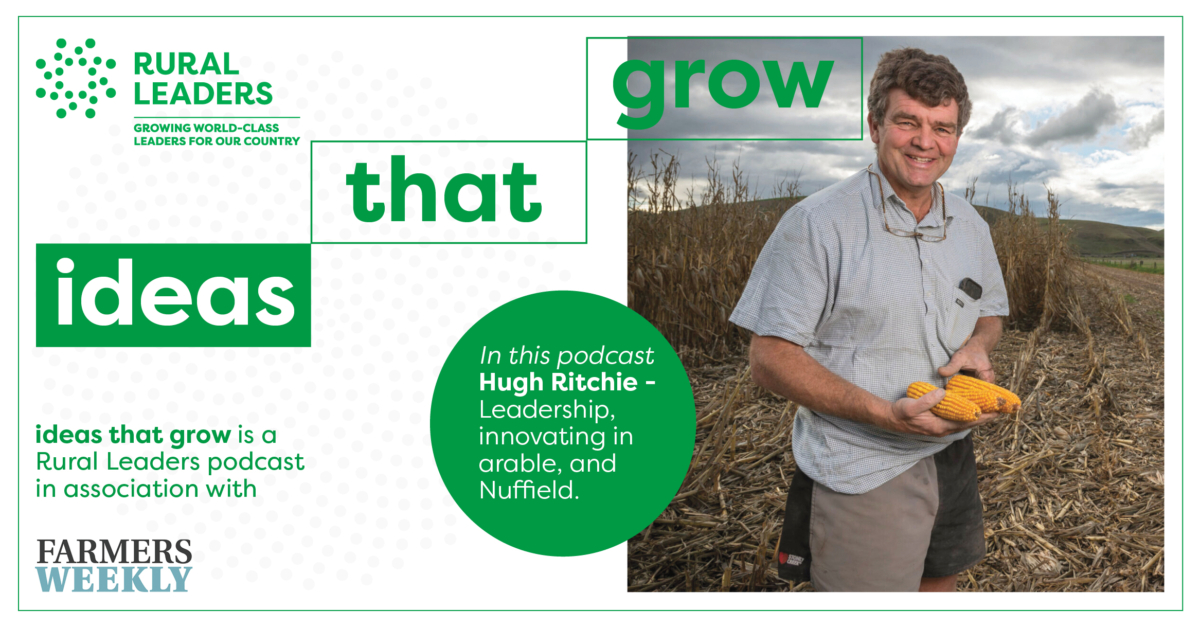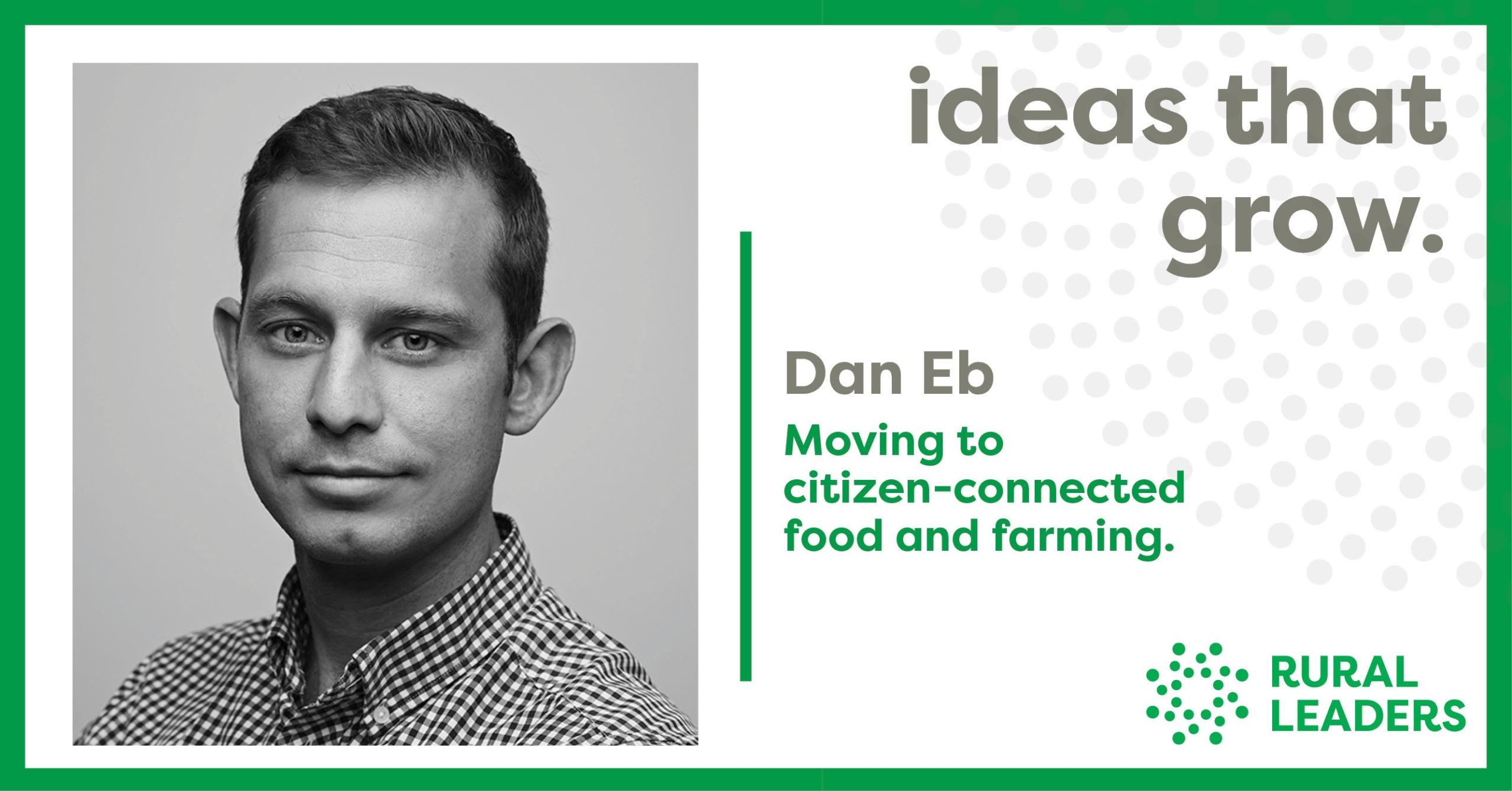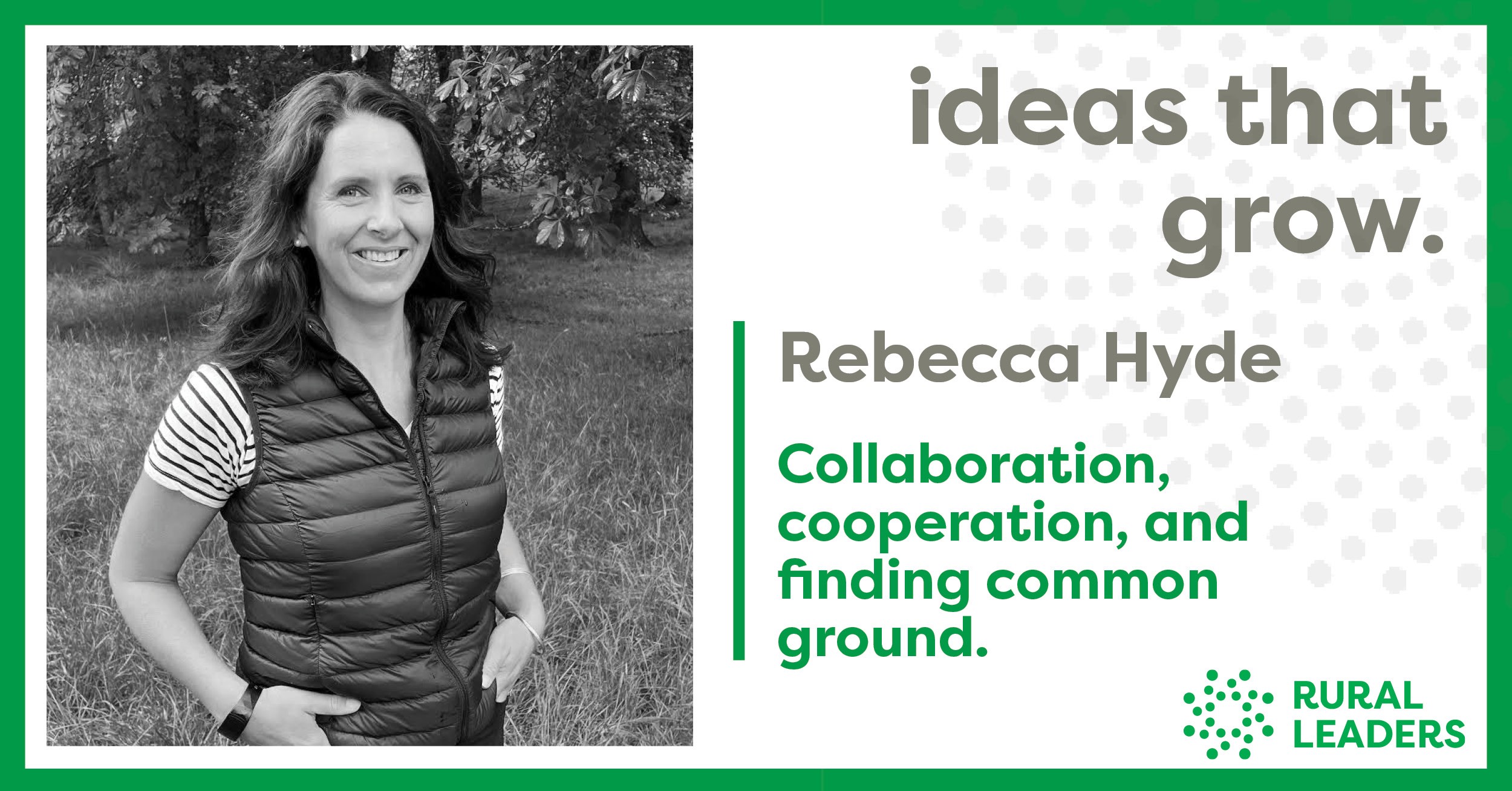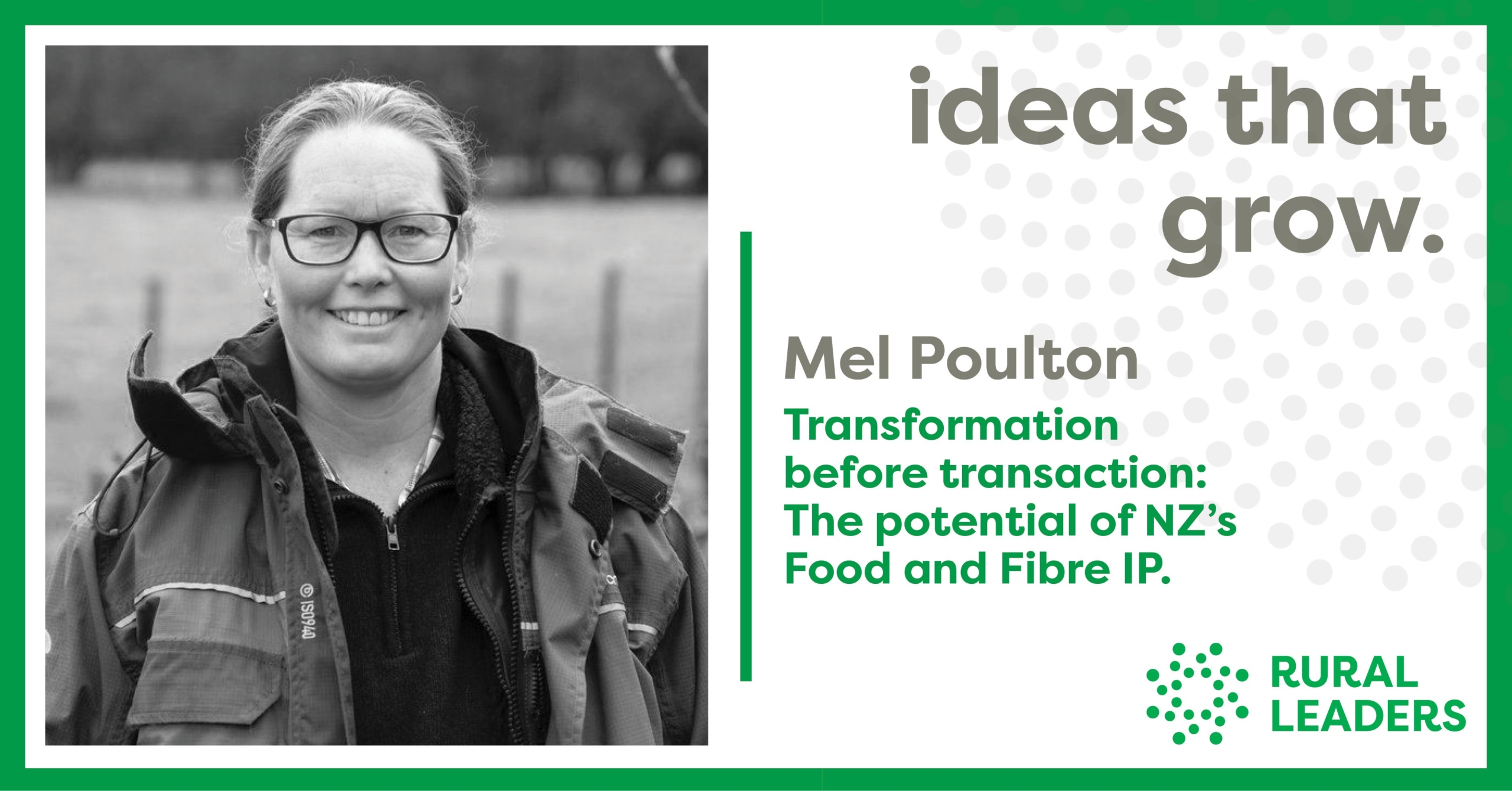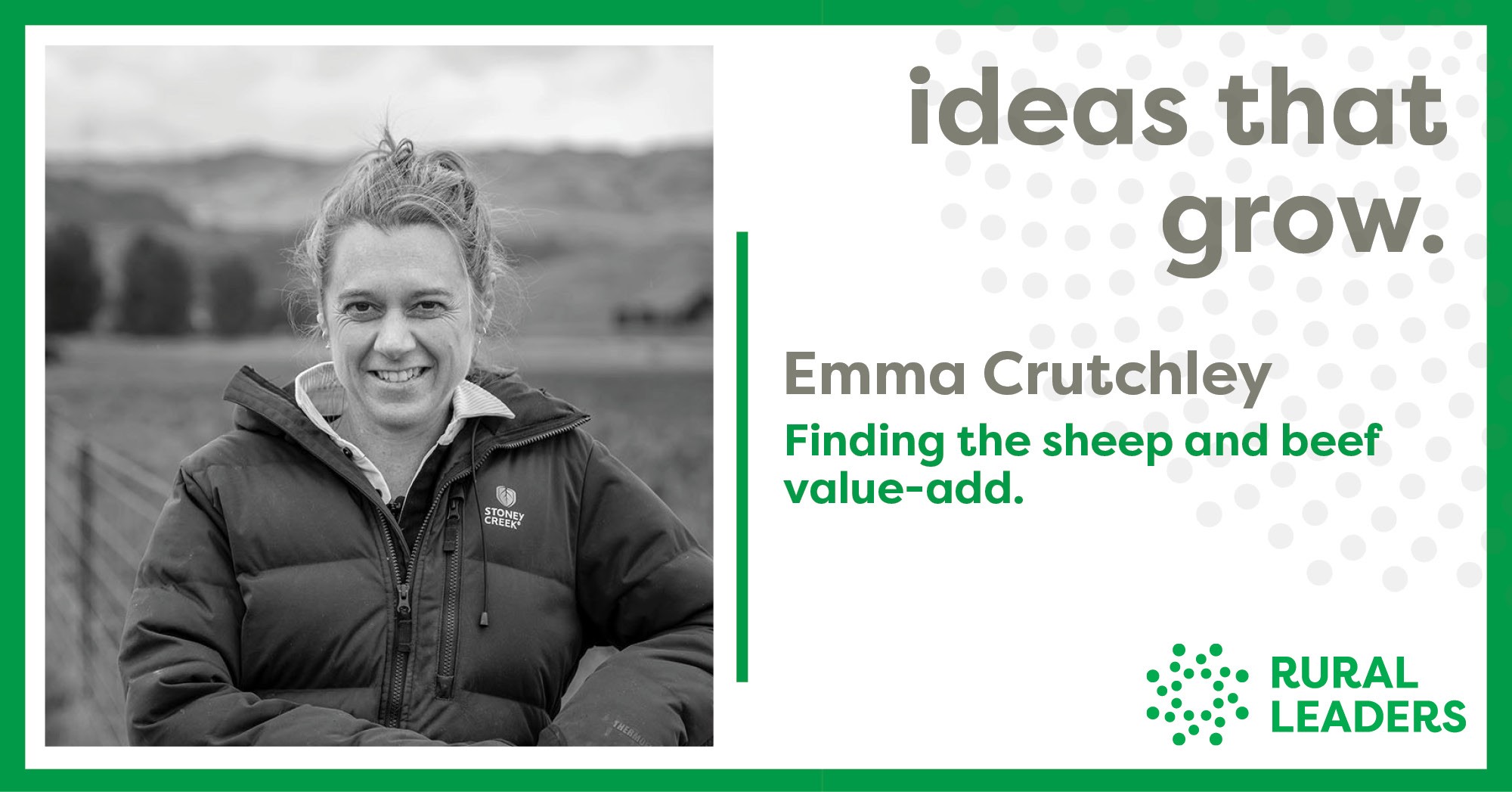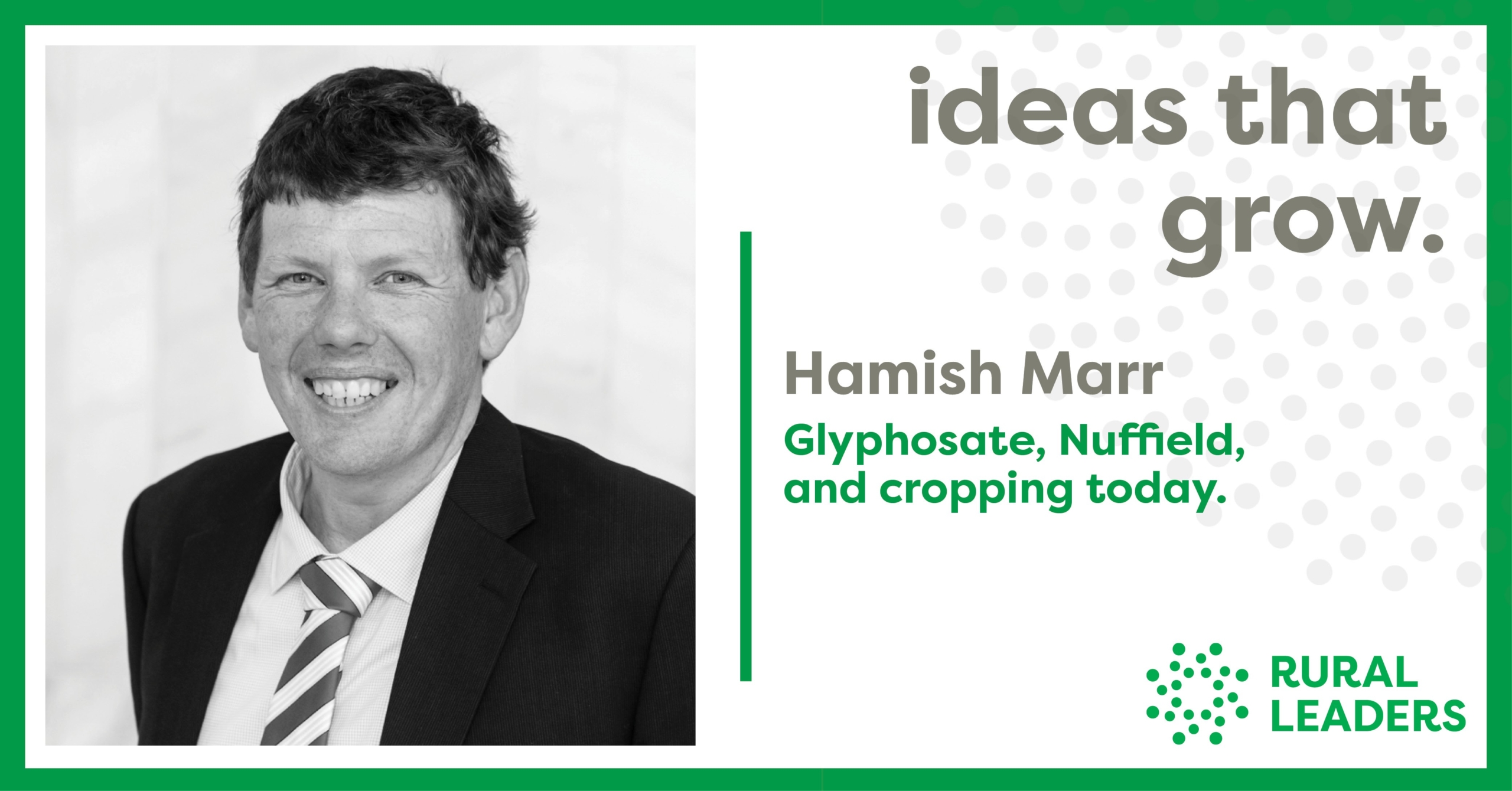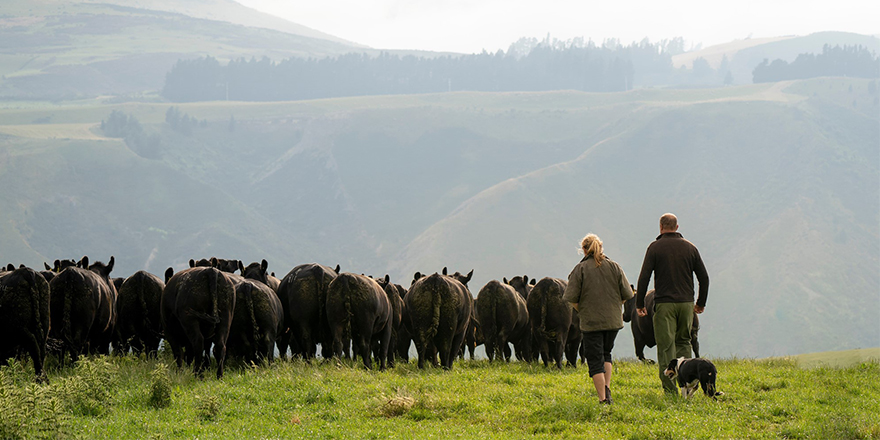In this podcast, Hugh Ritchie, 2000 Nuffield Scholar and Hawke’s Bay farmer, shares his leadership journey and insights with Bryan Gibson, Farmers Weekly Managing Editor.
Hugh discusses growing Drumpeel Farms into a diverse 2000-hectare operation, the impact of his Nuffield experience on his personal growth, on innovation in irrigation and strip tillage, and on the need for better water access and infrastructure.
Hugh emphasises collaboration, global learning, and the importance of leadership development as vital to strengthening NZ’s food and fibre future.
Listen to this episode of Ideas that Grow, or click on one of the platform icons below to listen on your favourite player:
Episode Transcript
You’ve joined the Ideas That Grow podcast, brought to you by Rural Leaders. In this series, we’ll be drawing on insights from innovative rural leaders to help plant ideas that grow so our regions can flourish. Ideas That Grow is presented in Association with Farmers Weekly.
Bryan Gibson, Managing Editor of Farmers Weekly.
You’re with Ideas That Grow, the Rural Leaders podcast. I’m Farmers Weekly Managing Editor, Bryan Gibson. This week on the show, we have Hugh Ritchie from Drumpeel Farms. Gidday Hugh, how’s it going?
Hugh Ritchie, Farmer, 2000 Nuffield Scholar:
Good thanks, Bryan. And yourself?
BG: Yeah, pretty good. How are things over in Hawke’s Bay?
HR: We’ve got a very nice day. Had pretty big winds last night, which was good. I know we’re just finishing off the carrot washing harvest, and then we’ll get back into maize again. But no, it was a pretty good wind last night. But other than that, we’re good. Been a good summer for growing grass, so can’t complain.
BG: Very good. You operate a pretty diverse farming system over there.
A little about Hugh and Drumpeel Farms.
HR: Yeah, we’re just over 2000 hectares in total. We do about 800 hectares of annual cropping. So half of that’s processed vegetables. The other half is seeds and cereals with a little bit of vegetable seed production as well. And then we have 1500 bull beef on a pastoral block.
We normally finish between 8500 and 10,000 lambs – winter lamb trade as well. So that keeps the business going on many fronts. We haven’t got dairy, and we had deer, but haven’t got deer anymore. So, we do most things.
BG: Has running that operation been the bulk of your farming career?
HR: It has, yes. I left school and did a Bachelor of Ag at Massey. Production and Management was more my side. Then I came home to run the block. In those days, it was 300 hectares. We’ve grown the business quite significantly in that time as a family business. We’re reasonably proud of the fact that it’s up over 2000 hectares, and it’s quite diverse and quite intense.
We have great staff helping. I have a very good stock manager who runs the livestock site, and I tend to stick to the overall management in the cropping. It gives me a wee bit of flexibility and scale to go and do other things.
I’ve been on the Federated Farmers Board. I’ve spent some time on the Nuffield Trust, and recently on the FAR board and HortNZ board as well. So yes, I have done quite a lot of off-farm stuff as well as farming. Currently trying to get water storage across the line in Hawke’s Bay, which is proving rather tricky.
BG: Yeah, that’s been years in the making, hasn’t it?
HR: Yeah, it has.
BG: You were a Nuffield scholar in 2000?
2001: A Nuffield Odyssey.
HR: Adrian (Gault) and I travelled in 2001. I looked at irrigation efficiency and direct drilling till type systems. From there, we brought back the basis of the irrigation New Zealand design and monitoring system. I came back from a course I did at Cal Poly/University with Charles Burt, the director there, on how to evaluate irrigation systems for distribution uniformity.
Went through the Midwest and strip tillage was a big thing happening there in min till. So I brought back a strip till and worked a lot with landwise, which was a sustainable cropping programme here in Hawke’s Bay, where we developed strip till to run in New Zealand.
So, the trip itself had big impact on bringing knowledge back, which I’m pretty proud about. But equally, the trip itself, in terms of forcing you to be off-farm and allow people to run the business and do it for you also created, I suppose, opportunity within to make sure that you didn’t just then beaver away with your head down and not really looking at the bigger picture. So it was a very useful journey to go on.
BG: It sounds like it was useful not only personally for you, but in terms of the way New Zealand Food and Fibre has progressed since then.
Giving back to New Zealand food and fibre.
HR: I’d like to think that that is the core of Nuffield. It’s a personal development journey in leadership, but it’s also because it is funded by people (Rural Leaders’ investing partners), I think there’s a responsibility to bring things back that can be useful. That was the whole concept of it, to my mind, was to go and learn and explore things and bring ideas back that we could utilise in New Zealand.
I know everybody says that we lead the world in agriculture, but there’s some really clever people overseas that are more than willing to share their ideas and learning. You don’t have to re-invent the wheel. You can go and learn from people. That’s a pretty good thing.
BG: And was getting out and seeing the way farming is done in other parts of the world at that young age, good for you in terms of your way of looking at things back home?
HR: It certainly got me out of my shell. I remember driving down the interstate in the US, and 2000 was when the UK had foot and mouth. So, I moved to the US pretty quickly. And again, obviously, irrigation and direct drilling was probably their forte.
Nuffield and getting out of your comfort zone.
HR: But It was quite interesting driving in the States and I’d just see something that was interesting or something going on, and I pull over to the side of the road and jump the fence. And you could see these guys looking at you a bit sideways for a while, and eventually they’d stop and you’d go and have a chat. I wouldn’t do that in New Zealand necessarily, but over there, they probably are never going to see you again. If it went badly, you could just walk away.
But it was an incredible journey to see people, they really explained what they were trying to achieve. I visited the conservation information centre, again, because timings were out with the universities, And Dan Tauri, who was running that centre, and he just rang people up and said, hey, I’ve got this New Zealander looking at these things.
I think it’ll be interesting if we talk to you and just set up a whole lot of visits. So it was very spontaneous. Which is something we probably don’t always do a lot of – and just taking the opportunities and meeting people, and then they would send you on to somebody else. I was probably not that outgoing at that stage. And so you had to get over not wanting to push people or ask for things.
It was quite a learning journey there, but it was just amazing how willing people were to give their time and information to help. I think New Zealand reflects that and does that too. It’s a two-way street, but certainly that was eye-opening to me, just how open people were to share.
BG: You’ve gone on to take on some pretty big leadership roles in the farming sector. Obviously, Nuffield might have been a good base for that, good grounding.
Nuffield and the global perspective.
HR: Certainly, I think, as I said, Nuffield gave you that broader picture of what was happening in the world. We could sit back here and moan about things or moan about pricing. You really had to understand that we are a small part of a very big system, especially within the cropping scene in terms of direct import and things like that.
There was no point moaning about price because if someone could import it cheaper, that’s what was going to happen. We had to really get on side with how do we make our systems better, more efficient, more cost-effective, and grow that way. That was very useful.
I think coming back and sitting in Fed Farmers meetings when people were trying to give the millers or the bakers a hard time about not paying enough for wheat, and you just had to say, well, occasionally it is what it is. And so we can either agree to grow or not. But there’s no point beating the guys that are going to buy your crop, because it’s probably not going to do anything for your relationship.
BG: It’s funny. I was in a conference last week talking to someone, and they thought the goal should be that all of New Zealand’s agricultural sector should be like our arable sector, which has always been small and nimble and knows its place in the world and has innovated to make sure it’s sustainable. That’s a good model.
Innovating in the arable sector.
HR: It is. But again, I’ll be the first to admit at the moment, it’s really hard work making arable pay and sitting on the HortNZ board and looking at what IP good varieties of apples can make in the market. Or you look at kiwifruit and how well that’s going with dedicated export and serious funding around marketing and driving the supply. I mean, a really good example to follow.
I am really proud that we set up the Cultivate Ventures thing and during my time with FAR to try and create that work stream to find ideas and innovation that we can be nimble about and follow. But Certainly, we do have to, I think, do things differently going forward within the arable sector because things haven’t really changed. There’s big players out there that can produce volume commodity crops.
We’ve really got to look to what is the alternative? Where’s our niche play and where can we really drive value? If there’s a frustration I have, it’s probably the fact that just in the recent times, we see the influence of the primary sector pulling New Zealand’s economy around and making trade surplus. And yet, where is the science, technology, or the resource running?
Water is the key.
HR: We’re getting better, but trying to get water on the side to provide reliable supply should be easy, especially when it’s going to backstop a primary sector that can then grow and do things. And where’s market or trade and industry helping? I just think we don’t really get a strategy that lines all the things we can do up to really make the most of it. We leave it to the individual, and sometimes that becomes a very hard push.
BG: Yeah, the water piece is really interesting. You brought back some innovative ideas in 2000, but we’re still having the same conversations about how, where, and why when it comes to water storage and that sort of thing.
HR: What I brought back was efficiency and distribution uniformity and how do we make what we’ve got go as far as it possibly can? Because as we all know, it’s not cheap to pump water and put it through irrigators. So, you have to make sure you get the best bang for your buck from that.
So that was the efficiency side. And that, I think, goes without saying, we should be striving for that when it comes to water. But when it then comes back to at the moment, this mentality, I think, is almost how do we cut the pie up, the current pie up smaller and smaller and make all those things happen. Whereas we actually aren’t water short in New Zealand.
We’ve got a huge primary resource there. I’m not saying we waste it, but I think we shouldn’t be afraid to utilise it to the best extent. I just look across the ditch at Australia, Murray, Darling Basins somewhere like 115 % allocated. Canterbury and here in Hawke’s Bay, probably the max out at about 7% and 3% respectively. We’re not even getting close to pushing the boundaries of the available water, but absolutely, we have to do it as efficiently as we possibly can and be mindful of the environment.
I just think we shouldn’t be afraid to look at how do we grow that pie because that’s what we can then grow value and further productivity gains on.
The trickle-down effect.
BG: Yeah, and with the climate getting a bit more unpredictable, it’s a great opportunity to build resilience into communities as well, like people who are not part of food and fibre or maybe are supported through their work.
HR: Absolutely. If you look at the Opuha Dam when that was put in, it’s about the only study that’s being done. I think that showed on a MAF report, it was about $6.50 further value created from every dollar spent on farm, on water. And a lot of that went into the businesses, the support businesses in the town.
I think Temuka Transport before Opuha was 20 odd trucks, and now it’s 100 and something. Businesses support businesses, and hence the communities that support those businesses really do grow off the back of getting good water. So to my mind, it’s the enabler. We can talk about everything we like, but it’s the first stage in the process. We’ve got great soils and good climate. We just have to manage the water.
On Nuffield and leadership.
BG: You mentioned earlier, you’ve been part of the governance group for Rural Leaders. It’s obviously something you believe in, something you’d recommend to someone looking to get a good grounding in leadership.
HR: Look, absolutely. I mean, leadership does have to come from within, but the Nuffield Programme has developed so much from when I went through.
I remember going into my interview and there were nine primary sector leaders sitting in a semicircle, and I was sitting in the middle, and they each had a question to fire at me, and you went home.
Now, there’s still the interview process, but we’ve got the global tours that get the scholars together and look at different areas. There’s different focus tours around the world. We do a lot of training with getting the scholars ready to go on their journey. And it is a journey, and it’s a lifelong journey, and the network that you become part of and that you can link into.
It is a very big network that I think if it came together, it would be great. So absolutely I believe in it. And obviously there’s coupling it in now with some of the other programmes, like Kellogg and things, almost a progression, but it doesn’t have to be.
I think the opportunity of creating leaders or supporting leaders is more the thing. As I said, it’s time out of your life, it’s a commitment you have to make, and it’s an ongoing commitment. I’d like to think that part of the nature of the Nuffield Scholar is how to give back to the industry or the bigger picture. Certainly an opportunity not to be missed.
I know it’s difficult with a lot of people with young families and things like that. How do they make the time? And so you have to think carefully about that. But I really encourage partners to be involved because it is quite a liberating experience to go and see and visit and get your mind open to the opportunities and the scale.
You can come back quite a different thinking person. So Again, having partners involved to explore and understand that, I think, is quite critical to success.
BG: For more information on Rural Leaders, visit the pages for Nuffield New Zealand Farming Scholarships, the Kellogg Rural Leadership Programme, the HortNZ Leadership Programme, the Engage Programme, or the Value Chain Innovation Programme.
